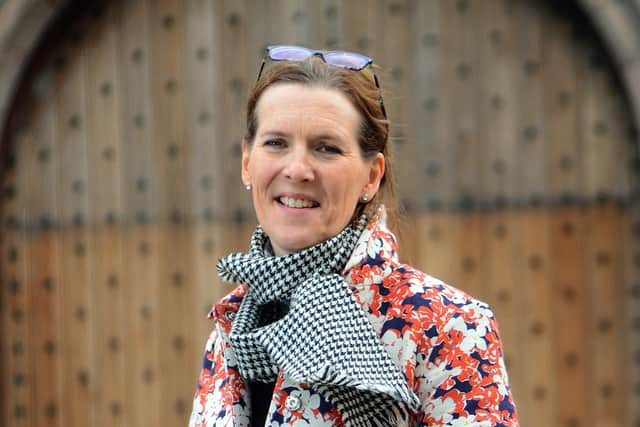Counterfeit goods warning for online Christmas shoppers


Footfall on high streets is still far lower than at the same time last year due to fears over the virus and, with restrictions on the number of people allowed into shops to adhere to social distancing regulations, many people are likely to shun in-person Christmas shopping this year.
Rachel Jones, chief executive of Edinburgh-based brand protection agency SnapDragon, warned items such as fake bicycle helmets have been found to break in two clean halves in crash tests, while counterfeit cosmetics have been found to include everything from arsenic to rat poison.
Advertisement
Hide AdAdvertisement
Hide AdOther dangerous products sold by criminals online include brake pads for bicycles which are stuffed with grass, rendering them useless, she said.
During lockdown, online shopping accounted for 80 per cent of consumer spending, compared to 20 per cent before the coronavirus pandemic hit. Meanwhile, adults spent around a quarter of their day online during the three months full lockdown from March.
Ms Jones said: "What’s happened with the pandemic is more people have gone online, so there are more people who are not experienced internet shoppers who are being duped more often – not just on fake goods, but on scams too.
"Online marketplaces are usually where the problems are as it is difficult to tell which are the products being sold by a real manufacturer and a fake.”
Ms Jones said items as diverse as baby products and toys, as well as popular Christmas gifts, were all at risk of being copied.
She said: "Cosmetics, unfortunately, are another one. The products that often go into fake cosmetics can scar someone, or at least give them a bad reaction – as it is something they are putting on their skin.”
She said many fake manufacturers try to create products which have a twist on the original – such as a limited edition colour – to make them appear more attractive to buyers.
"The message is that if it is too good to be true, it probably is. People should look at the real manufacturer’s website and see what kind of deals are around and exactly what kinds of products they have on offer.
Advertisement
Hide AdAdvertisement
Hide Ad"If it is a colour or a special edition that the manufacturer does not do, it is probably not real. When people see a deal, they don’t think about the rigorous safety measures and development which has gone into creating an authentic product – and that is often there to make sure it is safe to use.”
During the coronavirus pandemic, the market for fake pharmaceutical goods has rocketed, according to the Global Initiative Against Transactional Organised Crime. Even before the pandemic, trade in counterfeit and pirated goods accounted for 3.3 per cent of world trade, the organisation said. Meanwhile, figures from UK Finance showed that annual fraud and scam losses totalled £1.2 billion in 2018.
A message from the Editor:Thank you for reading this article. We're more reliant on your support than ever as the shift in consumer habits brought about by Coronavirus impacts our advertisers.
If you haven't already, please consider supporting our trusted, fact-checked journalism by taking out a digital subscription.
Comments
Want to join the conversation? Please or to comment on this article.